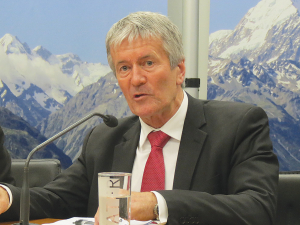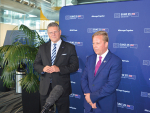Damien O'Connor admits his six years in office were incredibly challenging, with Covid, droughts, floods, storms, M. bovis and volcanic eruptions to name a few.
He told Rural News that dealing with these issues had been very time consuming, which as a result, meant less time for things such as consultation and collaboration. But he says despite all the challenges thrown at the primary sector, it still managed to increase exports by 50%.
"Something I am very proud of and something that has largely gone unrecognised."
O'Connor claims that in terms of the primary sector, Labour packed a lot into its six years in office. He says four new free trade agreements were negotiated and a further three were upgraded and now the vast majority of NZ's trade is covered by formal legal structures.
He believes that almost eradicating M. bovis was a major achievement that meant the whole pastoral sector avoided significant consequences.
O'Connor concedes that, in terms of regulations, there were some "technical mistakes", but claims these were "quickly rectified". He says it's always a challenge dealing with other people in partnership, in a formal commercial arrangement or in government and mistakes do happen.
"What Labour can claim is that it was doing the right things for the right reasons," he says.
In his last days as a minister after the election, O'Connor represented NZ at a full meeting of the CPTTP in the United States. This meeting was significant because it was the first meeting that the UK attended as a full member of the group. He says NZ strongly supported Britain's membership of the CPTTP and says this is significant for NZ as it means that a European country is now connected to the Asia Pacific region.
Now that he's back in opposition, O'Connor says he has plenty to do, including work on his own place and giving some help on the family farm.



















